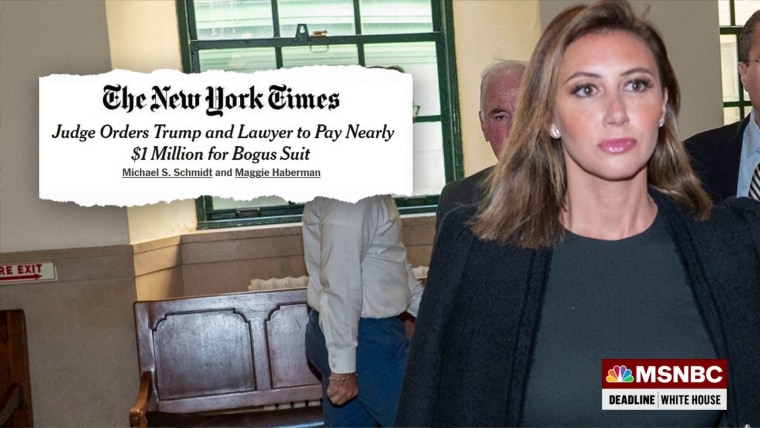Charging Donald Trump with a misdemeanor would be totally insane, right?
I’ve been thinking about that question lately, including after finishing former Manhattan prosecutor Mark Pomerantz’s new book, "People vs. Donald Trump: An Inside Account." I’m looking forward to his interview with Nicolle on the show Tuesday.
Pomerantz helped lead the Manhattan district attorney's office investigation into Trump's business practices until he resigned early last year. In making his case that the former president is guilty of multiple New York felonies, Pomerantz briefly noted in his book how some legal theories against Trump might only work as misdemeanors, such as in the Stormy Daniels hush money situation. “Only” being the operative word here, suggesting that only felonies would be worth the effort in such a monumental case. It’s an understandable sentiment, one that I’ve observed in the broader discourse over possible New York charges against Trump.
The felony/misdemeanor distinction has become potentially relevant recently. That’s because Manhattan District Attorney Alvin Bragg, whose alleged initial hesitancy to bring charges led Pomerantz to quit the case, is now reportedly presenting evidence to a grand jury regarding the hush money payment. A New York Times report published on Jan. 30 observed the legal uncertainty of being able to bring a felony case, as opposed to a misdemeanor, regarding falsifying business records in reimbursing then-Trump lawyer Michael Cohen for the payment. A felony charge requires that falsifying records helped conceal or commit another crime (the Times noted the "largely untested" theory of violating state election law as a potential second crime).
So while it’s unlikely, given the myriad federal and state probes into the former president, that his criminal fate will come down to a misdemeanor or nothing, it’s worth thinking about why we might be inclined to disregard anything called a misdemeanor as insufficient. I think that inclination is misplaced, for two reasons — one philosophical and one practical.
First, if Trump isn’t above the law, then no charge is too small for him, especially the sort of charge that people around the country face every day. If a misdemeanor winds up being the crime, or one of the crimes, he’s guilty of, then so be it, just as it would be for the rest of us.
Second, the practical difference between misdemeanor and felony charges can be smaller than one might think, as the hush money situation illustrates. The felony charge of falsifying business records in the first degree sounds quite serious — and any criminal charge is serious — but it’s the lowest level felony in New York, called an “E” felony, which, like the misdemeanor charge, can result in relatively brief incarceration. So the difference between a misdemeanor and a felony, at least for falsifying business records in connection with the hush money, could be minimal when it comes to potential incarceration.
And, again, I don’t expect Trump’s nationwide criminal exposure to come down to a misdemeanor or nothing, but it’s worth understanding why the idea is less absurd than it sounds at first blush, if the point is to treat Trump like the rest of us.

